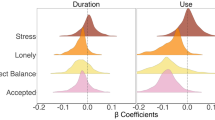Abstract
The myriad changes that have accompanied modernization – the “big data” era, rapid technological advancement, societal transformations on both large and small scales – pose severe challenges to individual, autonomous decision-making behavior, which is vital to the formation of a network public opinion environment. According to the Yerkes-Dodson law between cognition and pressure and prospect theory, we built a model to investigate the impact of cognitive resilience on the individual, autonomous behavior choices. We utilized the model to investigate changes in individual choice behavior from the perspective of catastrophe theory, and propose several network control strategies accordingly. Results indicated that individuals who demonstrate high levels of sensitivity to information and knowledge show relatively strong cognitive resilience. We also found that the catastrophe model explains the mechanism of change in individual choice behavior better than traditional models. Finally, we found that under the same situational factors, individuals with strong cognitive resilience maintain a high level of autonomy in when posed with challenges related to social cognition, and that controlling the level of social cognition in networks is an efficient way to manage individual behavior on the whole.










Similar content being viewed by others
References
Ajzen I (1991) The theory of planned behavior[J]. Organ Behav Hum Decis Process 50(2):179–211
Cen H, Koedinger K, Junker B (2006) Learning factors analysis–a general method for cognitive model evaluation and improvement[C]//Intelligent Tutoring Systems. Springer, Berlin Heidelberg, pp 164–175
Dickman SJ (1990) Functional and dysfunctional impulsivity: personality and cognitive correlates[J]. J Pers Soc Psychol 58(1):95
Flay BR (1978) Catastrophe theory in social psychology: Some applications to attitudes and social behavior[J]. Behav Sci 23(4):335–350
Garmezy N (1985) Stress-resistant children: the search for protective factors[J]. Recent Res Dev Psychopathol 4:213–233
Henry D, Emmanuel Ramirez-Marquez J (2012) Generic metrics and quantitative approaches for system resilience as a function of time[J]. Reliab Eng Syst Saf 99:114–122
Holaday M, McPhearson RW (1997) Resilience and severe burns[J]. J Couns Dev 75(5):346–356
Kumpfer KL (2002) Factors and processes contributing to resilience[M]//Resilience and development. Springer US, 179–224
Lieberman HR, Tharion WJ, Shukitt-Hale B et al (2002) Effects of caffeine, sleep loss, and stress on cognitive performance and mood during US Navy SEAL training[J]. Psychopharmacology 164(3):250–261
Liu SD (2006) China’s popular nationalism on the internet. Report on the 2005 anti‐Japan network struggles 1[J]. Inter Asia Cult Stud 7(1):144–155
Masten AS, Best KM, Garmezy N (1990) Resilience and development: contributions from the study of children who overcome adversity[J]. Dev Psychopathol 2(04):425–444
McEwen BS, Sapolsky RM (1995) Stress and cognitive function[J]. Curr Opin Neurobiol 5(2):205–216
Mendl M (1999) Performing under pressure: stress and cognitive function[J]. Appl Anim Behav Sci 65(3):221–244
Paulus MP, Yu AJ (2012) Emotion and decision-making: affect-driven belief systems in anxiety and depression[J]. Trends Cogn Sci 16(9):476–483
Richardson GE, Neiger BL, Jensen S et al (1990) The resiliency model[J]. Health Educ 21(6):33–39
Roberts BW, Kuncel NR, Shiner R et al (2007) The power of personality: The comparative validity of personality traits, socioeconomic status, and cognitive ability for predicting important life outcomes[J]. Perspect Psychol Sci 2(4):313–345
Starcke K, Brand M (2012) Decision making under stress: a selective review[J]. Neurosci Biobehav Rev 36(4):1228–1248
Taylor SE (1983) Adjustment to threatening events: a theory of cognitive adaptation[J]. Am Psychol 38(11):1161
Thom R (1975) Structural Stability and Morphogenesis, an outline of a general theory of models. DH Fowler[J]. Trans. WA Benjamin, Inc., Reading, Mass. 23–42
Tversky A, Kahneman D (1992) Advances in prospect theory: cumulative representation of uncertainty[J]. J Risk Uncertain 5(4):297–323
Wang M, Hu X (2012) Agent-based modeling and simulation of community collective efficacy[J]. Comput Math Organ Theory 18(4):463–487
Werner EE, Smith RS (2001) Journeys from childhood to midlife: risk, resilience, and recovery[M]. Cornell University Press
Yang J, He S, Lin Y, et al (2015) Multimedia cloud transmission and storage system based on internet of things. Multimed Tools Appl. 1–16
Zhao X, Hu B (2015) Modeling and simulation of voluntary employee turnover using catastrophe theory: a case study on a manufacturing enterprise in china[J]. Int J Model Simul Sci Comput 6(04):1550036
Acknowledgments
This work was supported by the Chinese National Natural Sciences Foundation (Grant Nos. 71531009, 71271093 and 71401090).
Author information
Authors and Affiliations
Corresponding author
Rights and permissions
About this article
Cite this article
Zhu, G., Huang, C., Hu, B. et al. Autonomy in individual behavior under multimedia information. Multimed Tools Appl 75, 14433–14449 (2016). https://doi.org/10.1007/s11042-016-3570-4
Received:
Revised:
Accepted:
Published:
Issue Date:
DOI: https://doi.org/10.1007/s11042-016-3570-4




